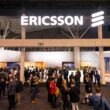Ericsson, Nokia get serious about US military’s 5G biz
Ericsson this week announced its new Ericsson Federal Technologies Group (EFTG), a division dedicated to selling the vendor’s services and equipment to the US government, including the Department of Defense (DoD). The move comes just weeks after Nokia announced its own Nokia Federal Solutions (NFS) unit.
“As the DoD looks to connect under one secure, unified communication system, I believe 5G is the solution to keep America secure and competitive,” said Ericsson’s Christopher Ling, head of the EFTG, in a release. Ling was previously at Booz Allen Hamilton, most recently as the head of the company’s national security business in the U.S.
Ericsson declined to answer questions from Light Reading about the company’s new division, including how many employees it might house and its expected revenues.
‘Just what the doctor ordered’
Analysts said the moves by Ericsson and Nokia are unsurprising and could be attempts to offset sluggish demand for 5G gear among network operators.
“Mobile operator spending has been depressed for the last year or so as 5G rollouts have slowed, and that’s taken a toll on both vendors,” analyst Ed Gubbins, of GlobalData, wrote in response to questions from Light Reading. “Tapping a revenue stream outside of the operator community is just what the doctor ordered for both companies, though I’m not sure when revenue from this activity is expected to ramp up or be meaningful.”
Analyst Joe Hoffman, with Omdia, largely agreed. (Omdia and Light Reading are owned by the same parent company, Informa.) Hoffman noted that there are around 800 military installations around the US, and each one could support at least a handful of 5G transmission sites. That means the DoD might purchase equipment for a few thousand cell sites. By contrast, AT&T and Verizon each operate networks spanning roughly 60,000 cell sites.
“It’s not huge,” Hoffman said of the DoD 5G opportunity. “It’s not like you’re selling to Verizon or AT&T.”
“But then, there’s always services that go along with it,” Hoffman added, noting that the US government is expanding investments into networking software.
Growing the opportunity
Nokia has long eyed the market for private wireless networking services, and Ericsson fully joined Nokia in the sector at the beginning of last year. However, analysts don’t believe the private wireless networking market is nearly as big as some vendors had hoped.
To read the complete article, visit Light Reading.

















